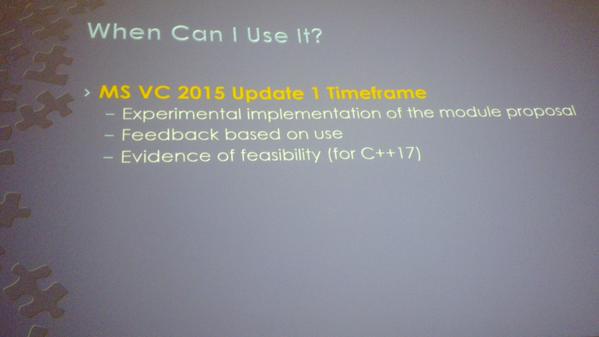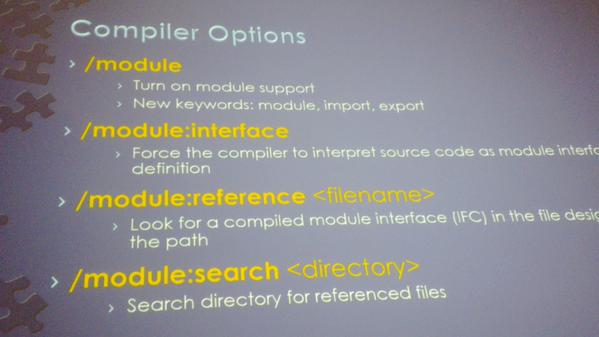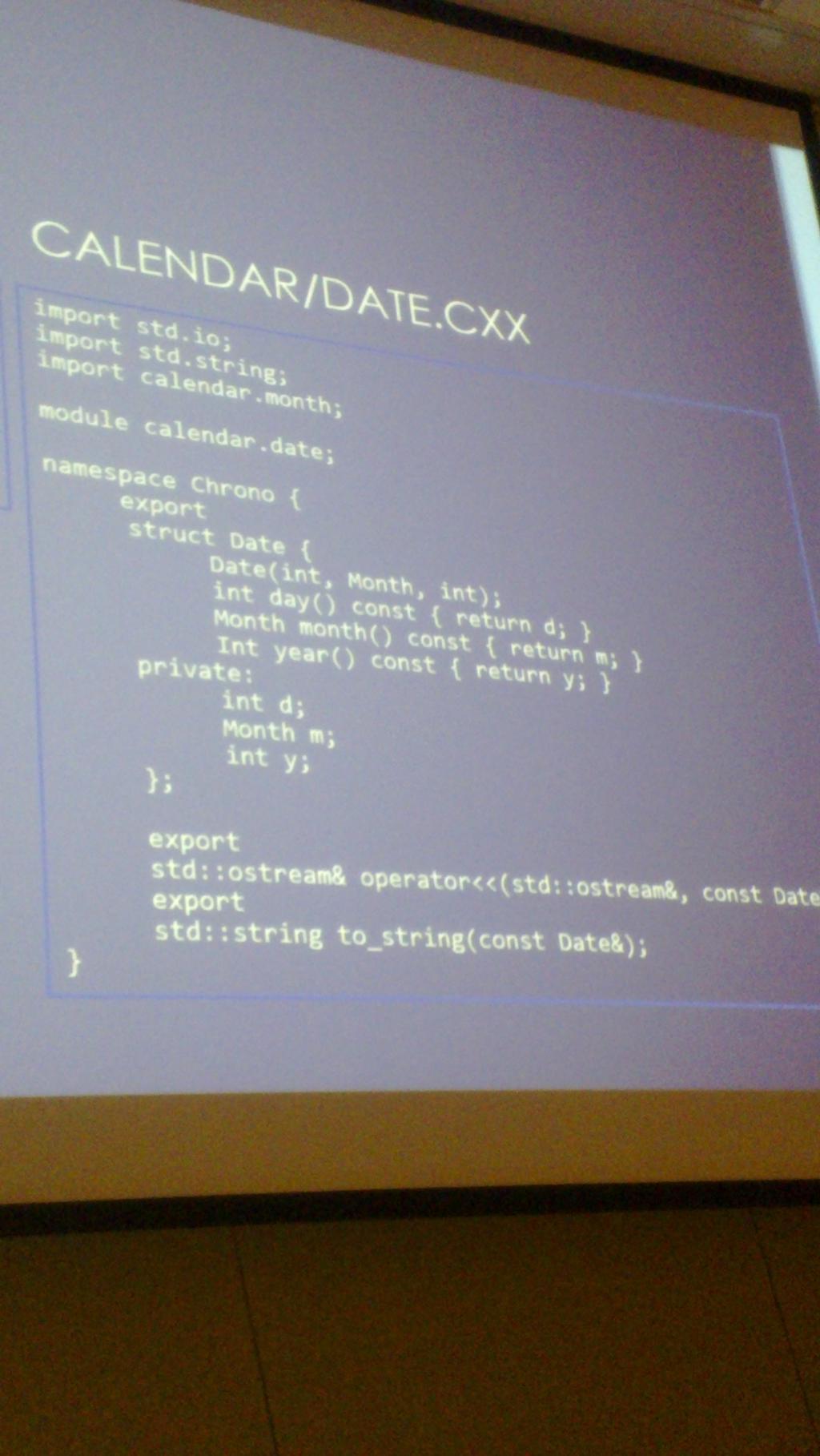C ++ module support in Visual Studio 2015 Update 1
At the CppCon conference, which is taking place right now, the Visual C ++ compiler development team announced that in the next update (Visual Studio 2015 Update 1), an experimental feature will be added to the C ++ compiler from Microsoft from the new (not yet approved) C ++ standard - module support!

For those who do not know what is the epoch-making of this event: it so happened that the mechanism of using components in C ++ programs was thought up about 35 years ago. It cannot be called convenient: if you want to create a library, you need to make a header file and distribute either a code or a compiled version of the library with it. This raises a lot of problems:
')
As a result, in the C ++ infrastructure there are no concepts of “assemblies” or “packages” and, unlike C # or Python, where the installation of components is trivial, in C ++, connecting each new library may incur its own surprises. The proposed mechanism of modules in C ++ is designed to remove this problem, abandon the preprocessor directive #include and refer to components as an entity consisting of code and metadata, holistic and easily connectable. As a result, we can soon get a significant acceleration of the introduction of new components into the project, the emergence of full-fledged package managers, the installation of a new library will be reduced to executing one line or several mouse clicks. Is this not happiness!
Under a cat there will be examples of use and links to documentation.
The presentation video is not yet available on the conference channel, so all we have is a few photos from Twitter, and links to the proposed draft standard for modules and its implementation in Visual C ++ and Clang.



For those who do not know what is the epoch-making of this event: it so happened that the mechanism of using components in C ++ programs was thought up about 35 years ago. It cannot be called convenient: if you want to create a library, you need to make a header file and distribute either a code or a compiled version of the library with it. This raises a lot of problems:
- The header file and library are separate files, one of them may be lost, or they may accidentally become out of sync.
- The header file is included in the code with the #include preprocessor directive, which firstly slows down the compilation, and secondly adds the effect of everything that is written in the header files on each other and on the final code. It is not uncommon for header files to be included in a specific order or to define some macros in order for the code to gather properly.
')
As a result, in the C ++ infrastructure there are no concepts of “assemblies” or “packages” and, unlike C # or Python, where the installation of components is trivial, in C ++, connecting each new library may incur its own surprises. The proposed mechanism of modules in C ++ is designed to remove this problem, abandon the preprocessor directive #include and refer to components as an entity consisting of code and metadata, holistic and easily connectable. As a result, we can soon get a significant acceleration of the introduction of new components into the project, the emergence of full-fledged package managers, the installation of a new library will be reduced to executing one line or several mouse clicks. Is this not happiness!
Under a cat there will be examples of use and links to documentation.
The presentation video is not yet available on the conference channel, so all we have is a few photos from Twitter, and links to the proposed draft standard for modules and its implementation in Visual C ++ and Clang.


Source: https://habr.com/ru/post/267781/
All Articles